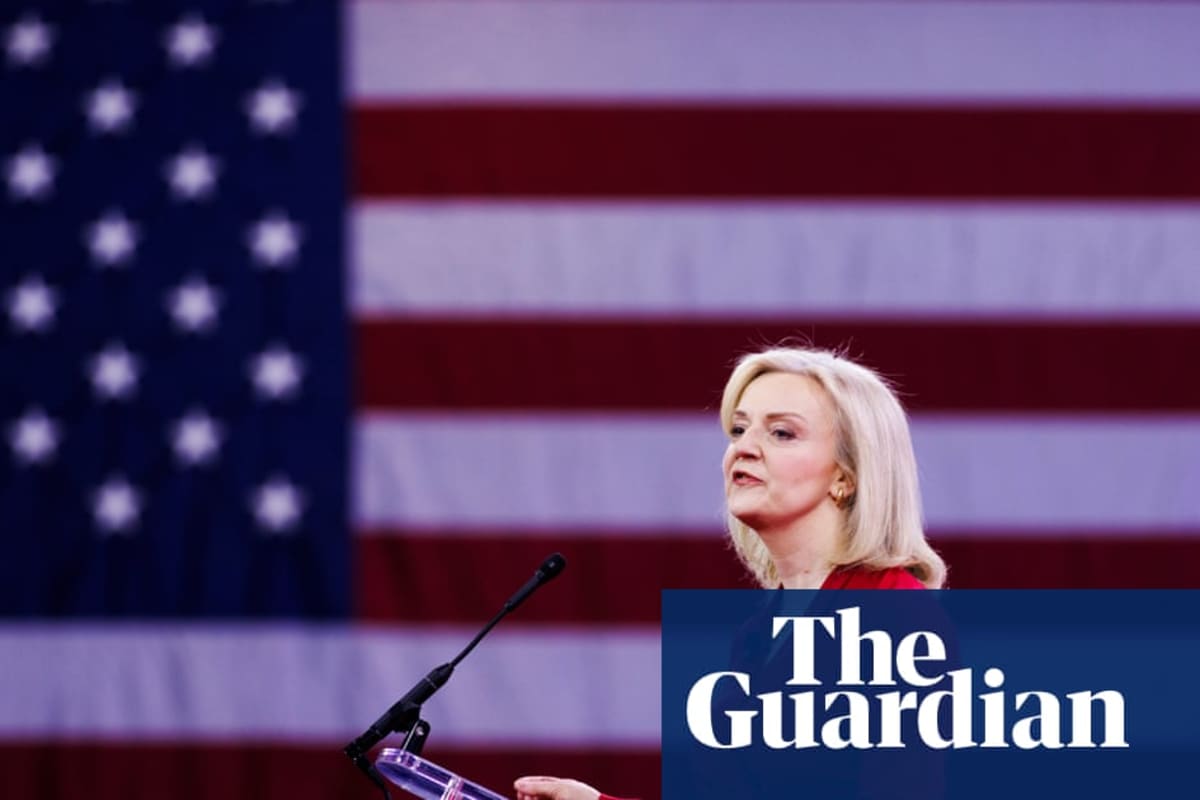Truss Sides with Trump: A Reckoning for Central Banks?

Liz Truss, the UK's shortest-serving Prime Minister, has reignited the debate over central bank independence by aligning herself with Donald Trump's long-standing criticisms, predicting a "reckoning" for institutions like the Federal Reserve, the Bank of England, and the European Central Bank (ECB) This alignment, articulated in an opinion piece published in The Guardian on August 28th, 2025, carries significant weight, particularly given Truss's own tumultuous tenure at 10 Downing Street, which was marked by open clashes with the Bank of England over fiscal and monetary policy Truss's brief 49-day premiership abruptly ended in late 2022 amidst a dramatic financial market crisis This crisis was widely attributed to her government's unfunded tax cut proposals, which triggered a collapse in the value of the British pound and a surge in government borrowing costs Her recent comments suggest a continued, and perhaps even intensified, belief that central banks wield excessive, unchecked power and are insufficiently responsive to the immediate needs and concerns of elected officials This stance directly echoes Trump's repeated attacks on the Federal Reserve's independence during his presidency, where he often accused the Fed of deliberately undermining his administration through interest rate hikes The implications of this shared sentiment, amplified by figures who have held high office, are potentially far-reaching and destabilizing Critics argue vehemently that such attacks on central bank independence erode confidence in financial systems and undermine the very foundation of economic stability Independent central banks, insulated from short-term political pressures, are widely regarded as crucial for maintaining price stability, controlling inflation, and fostering sustainable economic growth By politicizing monetary policy, governments risk prioritizing short-term gains, such as boosting economic activity before an election, at the expense of long-term economic health This can lead to market volatility, discourage investment, and ultimately harm the broader economy Conversely, supporters of Truss and Trump's views contend that central banks have become overly powerful, technocratic entities, detached from the lived experiences and urgent needs of ordinary citizens They argue that central banks' actions, particularly raising interest rates to combat inflation, can negatively impact employment, stifle economic growth, and disproportionately affect vulnerable populations who rely on affordable credit and stable incomes This viewpoint often finds resonance in regions facing economic hardship, stagnant wages, and persistent high inflation, contributing to the rise of populist movements that challenge established economic norms and advocate for greater political control over monetary policy For Southeast Asian nations, the potential ramifications of a weakening commitment to central bank independence are significant Many economies in the region are heavily reliant on exports, foreign investment, and stable commodity prices, making them particularly vulnerable to global economic fluctuations and shifts in investor sentiment If central bank independence is eroded globally, it could trigger increased volatility in currency markets, disrupt trade flows, and potentially hamper economic growth Moreover, Southeast Asian countries often face unique and complex challenges, including persistent inflationary pressures, currency instability, the need for massive infrastructure development, and varying degrees of political risk A period of heightened global economic uncertainty could exacerbate these existing vulnerabilities and undermine years of progress The ongoing debate on central bank independence raises crucial and fundamental questions about the delicate balance between political accountability and economic stability, between short-term expediency and long-term prosperity The absence of a globally unified response to this issue underscores its inherent complexity and highlights the critical need for diverse and nuanced approaches that carefully consider each country's specific economic context, political realities, and historical experiences For Southeast Asia, navigating this evolving landscape requires a sophisticated understanding of global economic dynamics, proactive policy adjustments, and, perhaps most importantly, a sustained focus on fostering economic resilience through diversification, innovation, and regional cooperation The comments from Truss and Trump should serve as a wake-up call, prompting a critical re-evaluation of the relationship between governments and central banks and a thorough assessment of potential vulnerabilities in the face of future economic shocks Ultimately, Truss's endorsement of Trump’s stance necessitates a deeper and more comprehensive examination of the role and responsibilities of central banks in the increasingly interconnected and complex 21st-century globalized economy It will be imperative for Southeast Asian governments to closely monitor global developments, engage in constructive dialogue with international partners, and formulate adaptive strategies that safeguard their economic interests amidst a period of growing uncertainty and geopolitical risk The potential consequences of undermining central bank independence extend far beyond immediate economic impacts, potentially influencing political stability, social equity, and long-term development prospects in the region Further research, robust data analysis, and open dialogue are crucial to mitigating potential risks and fostering a more resilient, equitable, and sustainable economic future for Southeast Asia and the world The interconnectedness of the global financial system means that actions taken in one region, or even pronouncements made by influential figures, can have far-reaching consequences for economies around the world The renewed debate surrounding central bank independence underscores the urgent need for enhanced international cooperation and a coordinated approach to navigate the multifaceted challenges of the 21st-century economy The implications for Southeast Asia are particularly noteworthy, given the region's vulnerability to external shocks and its reliance on stable global markets for trade, investment, and economic growth A proactive, informed, and collaborative response is essential to protect the region's economic progress and ensure a stable and prosperous future for its citizens This complex and multifaceted issue requires careful consideration, balanced analysis, and an unwavering commitment to evidence-based policymaking The comments from Truss and Trump highlight the critical need for ongoing dialogue and constructive cooperation among policymakers, economists, financial experts, and other stakeholders to ensure a stable, sustainable, and equitable global economy that benefits all nations, including those in Southeast Asia Continued monitoring and rigorous assessment of economic conditions will be crucial in the coming months and years to effectively manage the potential implications of this debate and to mitigate the risks associated with any erosion of central bank independence
